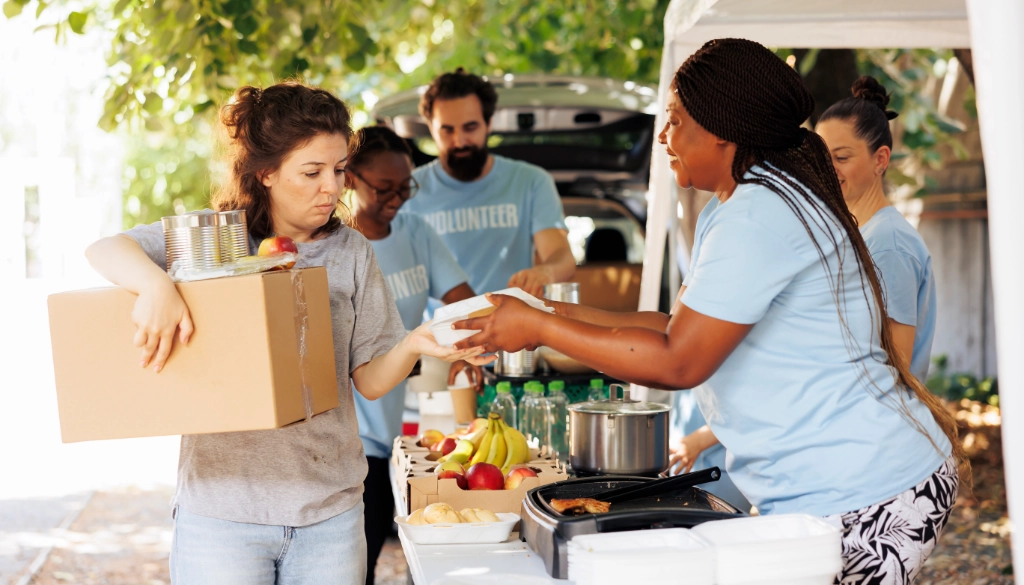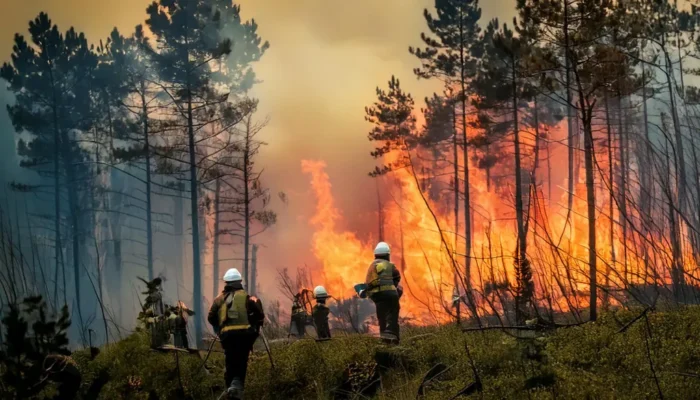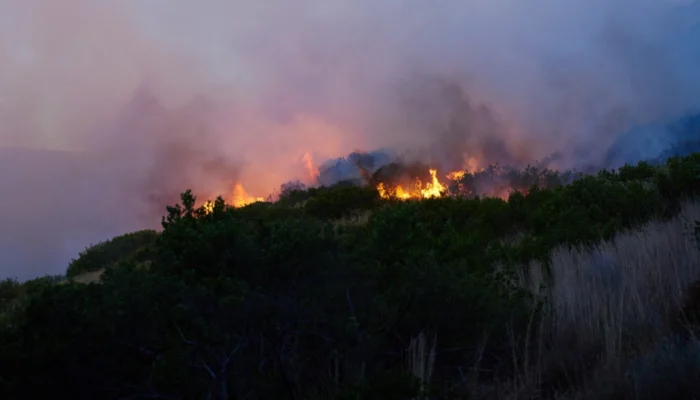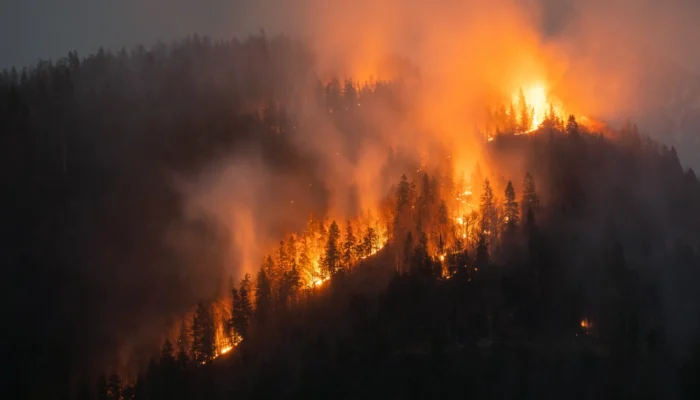Wildfires are some of the most destructive natural disasters people can experience. They can start suddenly and spread quickly, destroying homes, displacing families, and leaving entire communities without access to basic necessities. After the flames are out, the damage doesn’t just disappear. Survivors must rebuild their lives, homes, and communities from the ground up. But they can’t do it alone.
When people like you step up to help, it makes a huge difference. Whether it’s giving money, donating supplies, offering your time, or simply checking in on a neighbor, your support has the power to bring relief, comfort, and hope. Helping wildfire victims isn’t just a kind gesture—it’s often the lifeline they need to survive the toughest times and start again.
.
Table of Contents
ToggleWays to Help Through Donations
One of the most effective ways to help wildfire victims is through donations. Whether it’s giving money, sending supplies, or offering your space, donations can have a direct and powerful impact on someone’s life.
.
Donate Money to Reputable Organizations
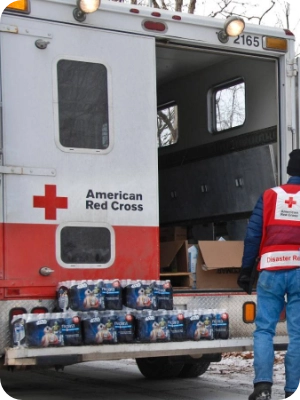
Money is one of the most helpful forms of aid during a disaster like a wildfire. It allows relief organizations to respond quickly to urgent needs and gives them flexibility to use funds where they are needed most. For example, donated money can go toward food, water, shelter, medical care, and even covering bills like electricity or rent for families who’ve lost everything.
If you choose to donate, make sure you give to organizations that are experienced in wildfire relief and have a history of using their resources wisely. Here are some trusted options to consider:
The American Red Cross is often among the first to respond during wildfires, setting up shelters and delivering meals and emergency supplies. The California Community Foundation Wildfire Recovery Fund supports long-term recovery efforts including housing, mental health services, and rebuilding. GiveDirectly provides direct cash transfers to families in need, which allows them to make their own decisions about what is most urgent. The California Fire Foundation gives emergency assistance to both victims and firefighters. The Salvation Army runs mobile kitchens, shelters, and donation centers across affected areas. There are also many local relief funds focused on specific fires, counties, or regions that may be worth looking into if you want to support your local community.
.
Provide Needed Supplies
In addition to money, donated goods are also a key part of disaster relief. Many people lose everything in wildfires, including clothes, food, and basic toiletries. You can make a big impact by donating the kinds of items families need most.
Food banks and shelters often accept donations of non-perishable foods like canned goods, pasta, and rice. Bottled water is always in high demand, especially when the water supply has been affected. Hygiene products such as toothpaste, soap, feminine products, and diapers are also critical during emergencies. Blankets, pillows, and gently used clothing can provide comfort to families who are trying to get through the first few days after evacuation.
Some organizations even make it easy to send items directly to where they are needed by providing wish lists on their websites or allowing online shopping through donation drives. Be sure to check what items are actually needed before you donate, as organizations might have limited storage or may be overwhelmed by certain types of supplies.
.
Support Animal Relief
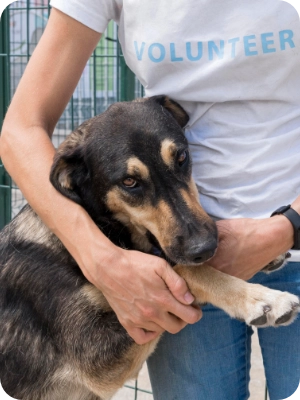
Wildfires don’t just harm people. They also threaten pets, livestock, and wildlife. Many families evacuate with their pets, while others have no choice but to leave them behind. Rescue organizations work around the clock to care for displaced animals, and they rely heavily on donations to do this work.
Groups like Best Friends Animal Society rescue and care for animals during emergencies, often offering veterinary services and shelter until pets can be reunited with their owners. The Los Angeles County Animal Care Foundation and similar local groups provide food, medical care, and temporary housing for animals in fire zones.
Supporting these organizations helps keep pets safe, which in turn brings relief to families who are already going through emotional trauma. For many people, pets are family too, and knowing they are safe can bring comfort during a crisis.
.
Offer Temporary Housing
After a wildfire, many people are left without a place to stay. While some may find space in emergency shelters, these places can become crowded very quickly. Having a safe, private place to sleep can mean the world to someone who has just lost their home.
Programs like Airbnb’s Open Homes allow people to offer free accommodation to wildfire survivors, emergency responders, and relief workers. If you have an extra room, guest house, or vacant rental property, consider listing it on a platform that supports disaster relief.
Not only does this ease the burden on local shelters, but it also gives victims a more comfortable and private space to begin their recovery. Staying in someone’s home can also help restore a sense of normalcy, even if just for a little while.
.
Opportunities for Volunteering
If you aren’t able to donate money or supplies, there are still many ways you can help. Volunteering is another powerful form of support, and it gives you the chance to be directly involved in helping others.
.
Assist at Food Banks and Shelters
One of the simplest ways to help is by volunteering at local food banks, community centers, or shelters. These places often need extra hands to pack meals, organize supplies, clean facilities, or distribute care packages to wildfire victims.
During times of crisis, the number of people needing help goes up while the number of volunteers often goes down. If you’re healthy and able, offering your time—even just for a few hours—can make a big difference. You might spend your shift sorting donations, cooking meals, or simply offering a warm smile to someone who’s going through a hard time.
Many food banks and charities offer flexible shifts and training for volunteers, so don’t worry if you don’t have experience. Just showing up with a willing heart is often all that’s needed.
.
Join Recovery and Rebuilding Efforts
After the smoke clears, the real work begins. Rebuilding homes, schools, and neighborhoods can take months or even years. That’s why organizations like Habitat for Humanity and All Hands and Hearts organize teams to help with cleanup, repairs, and construction projects.
You don’t have to be a professional builder to help. Volunteers are needed for everything from painting walls to clearing debris and even doing administrative work behind the scenes. These organizations often provide safety training and guidance, so you’ll know exactly what to do.
Volunteering for recovery efforts is a way to be part of the long-term solution. It gives families hope and helps entire communities get back on their feet, step by step.
.
Support Community Preparedness
Another meaningful way to volunteer is by joining community efforts focused on wildfire preparedness. These programs work to educate the public about fire safety, evacuation plans, and emergency alert systems.
You can help by handing out flyers, hosting information events, or going door-to-door in high-risk areas to make sure residents know what to do if a fire breaks out. You could also join local projects that aim to clear brush or install fire-resistant landscaping in vulnerable areas.
These kinds of efforts may not grab headlines, but they save lives. By helping your community prepare before a disaster strikes, you reduce the damage and stress when one actually does.
.
Offer Emotional Support
One of the most overlooked ways to help wildfire victims is through emotional support. Losing your home or fearing for your safety is a traumatic experience. Many people feel overwhelmed, hopeless, or lonely in the aftermath.
You can help by volunteering to check in on survivors through phone calls, joining a support line, or assisting at resource centers where people go for help. Peer counseling, emotional first aid, or simply being there to listen without judgment can provide a lifeline to someone who’s struggling.
Organizations often train volunteers in how to provide safe and supportive care. Even if you don’t have a background in counseling, your presence and kindness can mean everything.
.
Other Ways to Help
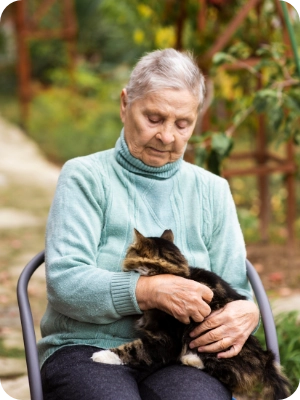
Not every act of kindness has to come through a large organization or formal program. Sometimes the most powerful help comes from simple, everyday actions you can take right in your own neighborhood or online.
Start by checking in on those around you, especially seniors, people with disabilities, and anyone without reliable transportation. In times of crisis, many individuals are isolated or unsure of what to do. A quick phone call or visit to ask if they need help evacuating, picking up supplies, or finding a safe place to stay can make a real difference. Offering your spare room or even a ride to a shelter could be lifesaving.
It’s also incredibly important to show gratitude to the brave individuals fighting the fires. Firefighters work under extreme pressure and dangerous conditions for long hours, and a little appreciation goes a long way. Consider writing a thank-you card, hanging a supportive sign outside your home, or donating to organizations that train and equip them. If you’re curious about how people become wildland firefighters or want to support their work more directly, check out this article: Firefighter Training: How to Become a Wildland Firefighter. It breaks down the training, risks, and dedication required for these critical roles.
You can also support wildfire-affected communities by shopping locally. Many small businesses lose income during evacuation orders and may struggle to reopen. Buying gift cards, ordering takeout when possible, or leaving positive online reviews are simple ways to help them recover.
Lastly, don’t underestimate the power of spreading information. Sharing verified updates, donation drives, or emergency resources through social media or community boards helps more people access the help they need. One post or repost might connect a family with a shelter, a pet with its owner, or a victim with life-saving aid.
.
Conclusion
Helping wildfire victims isn’t just about responding to a disaster in the moment—it’s also about supporting people as they recover and helping communities become stronger for the future. Donations, volunteering, and everyday acts of care are all part of a larger effort to bring relief, rebuild hope, and prepare for what’s next.
Even if you can’t be on the ground, you can still make a real impact by giving to trustworthy organizations, raising awareness, and encouraging preparedness in your own family and neighborhood. Speaking of preparation, one of the best things you can do—before disaster strikes—is make sure your household is ready. Preparing Your Family for Wildfire: Essential Steps Before an Evacuation is a great resource that walks you through how to create an emergency plan, pack a go-bag, and stay safe when wildfires threaten your area.
In the end, wildfires may damage homes, towns, and landscapes, but they also shine a light on the kindness and strength of people who rise to meet the moment. Whether you give a little or a lot, what matters most is that you show up. Because in times like these, every action counts, and together, we can make recovery possible.
